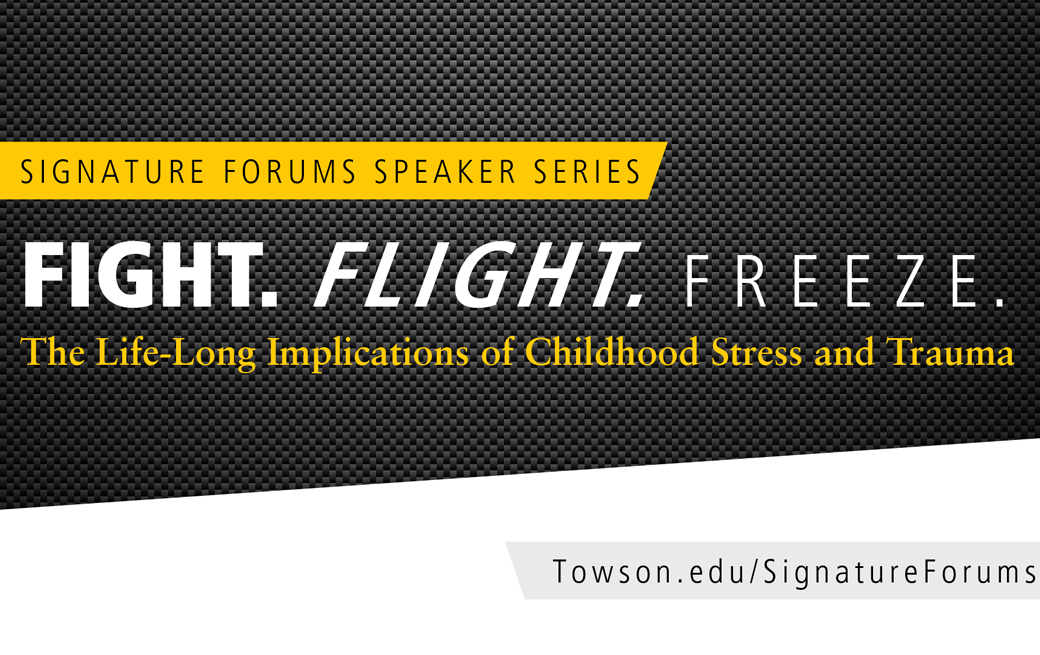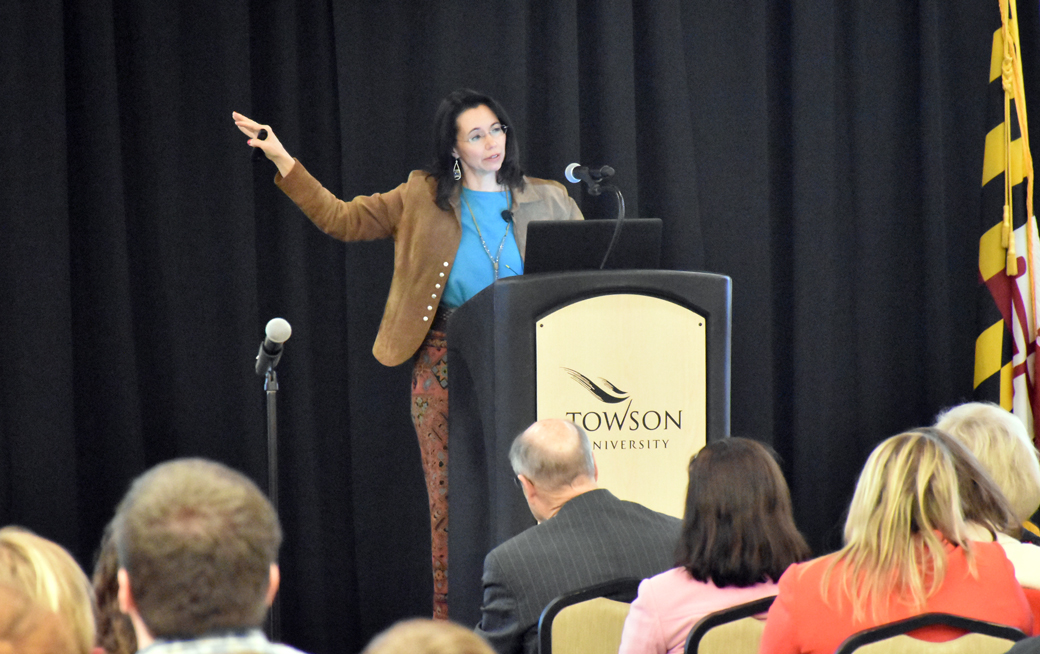
Childhood stress and trauma have lifelong implications
Keynote speaker Bethany Brand shared her insights at TU’s Presidential Scholar Signature Forum.
By Kyle Hobstetter on April 12, 2018

For the past 25 years, Towson University professor Bethany Brand has devoted her career to treating and assessing trauma.
In addition to teaching in the Department of Psychology, Brand has done extensive research on trauma, presented at international conferences and forums, opened a private practice, and served as a forensic expert in trauma-related cases on the federal, capital and United States Supreme Court levels.
Earlier this week Brand shared her expertise at the Presidential Scholar Signature Forum[BROKEN LINK], part of the Preparing for Public Education in the 21st Century: Signature Forums speaker series.
The annual event, held at West Village Commons, welcomed over 250 attendees. Among them were members of the TU community, local educators and administrators, first responders and policy makers.
Brand’s presentation, “Fight. Flight. Freeze. The Life-Long Implications of Childhood Stress and Trauma,” took a closer look at how brain function changes in adults who experienced childhood trauma and at the repercussions for society.
Childhood trauma is widely discussed among educators and those who work specifically with children. That’s why forum host Nancy Grasmick, TU’s Presidential Scholar for Innovation in Teacher and Leader Preparation, felt Brand’s expertise and experience was a perfect fit.
“She has an incredible reputation,” Grasmick said. “Dr. Brand is a treasure. She’s very knowledgeable and has an international perspective on trauma. And I think today people will realize the longitudinal effect of being exposed to very significant stress and trauma.”
Brand explained how research has shown that trauma alters the brain—affecting behavioral, social and emotional functioning. She pointed out that as a child ages, these effects continue to influence brain development, educational outcomes and social activity well into adolescence and adulthood.
When asked what she was hoping attendees would take from the forum, her answer was simple: “Trauma touches all of us.”
“Almost all of us have been affected by trauma, either directly or certainly in people we know and love,” Brand said. “I wanted to express how common childhood trauma is, and how its effects can be lifelong. But there are also things you can do to help manage them and heal from trauma, and to support each other in that healing.”
Since January 2013, the Presidential Scholar Signature Forum has convened events with national experts who provide education stakeholders with access to the most up-to-date research for teacher preparation.
For Grasmick, these forums were the realization of a dream of bringing sophisticated knowledge to people who were hungry for it. She’s excited to see what the future brings as TU continues to grow.
“It’s just been amazing,” she said. “We want to continue the forums, reaching beyond Towson University and encouraging reciprocity. We want people coming to campus and realizing what TU has to offer—and what they can offer us in terms of growth.”
Watch Brand's complete presentation at the Presidential Scholar Signature Forum below.